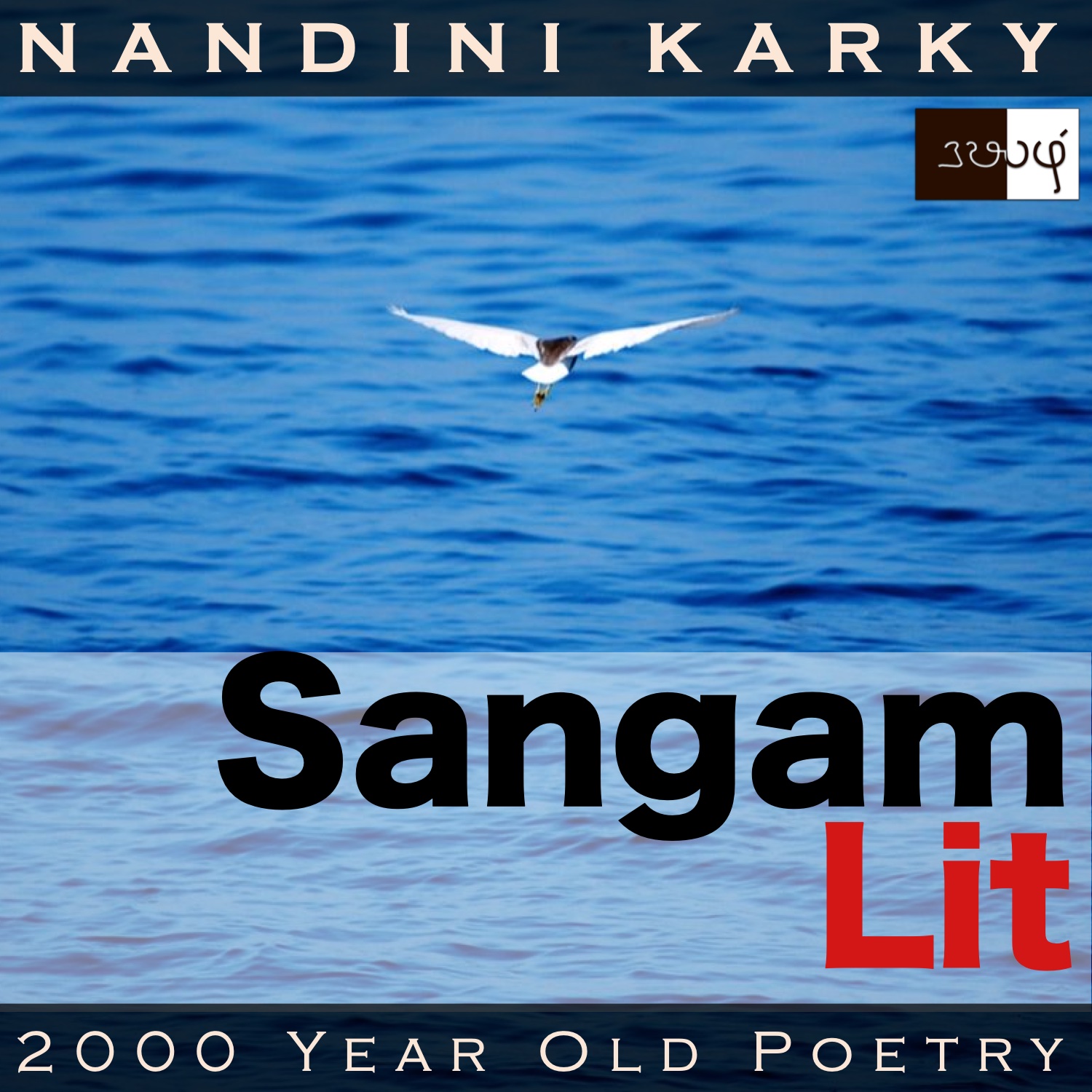Podcast: Play in new window | Download
Subscribe: Apple Podcasts | Spotify | Amazon Music | Android | iHeartRadio | TuneIn | RSS | More

In this episode, we perceive how a lady projects her feelings on an element of land, as depicted in Sangam Literary work, Kurunthogai 163, penned by Ammoovanaar. Set in the coastal regions of ‘Neythal’, the verse speaks in the voice of the lady to the sea, lamenting about her state, as she remains parted away from the man.
யார் அணங்குற்றனை-கடலே! பூழியர்
சிறு தலை வெள்ளைத் தோடு பரந்தன்ன
மீன் ஆர் குருகின் கானல்அம் பெருந்துறை.
வெள் வீத் தாழை திரை அலை
நள்ளென் கங்குலும் கேட்கும், நின் குரலே?
‘Sleepless sea’ is the curious core of this one. In the opening words ‘யார் அணங்குற்றனை’ meaning ‘because of whom are your suffering’, the verse puts forth an intriguing question. Animal and bird life appears before us in ‘சிறு தலை வெள்ளைத் தோடு’ meaning ‘white goats with small heads’ and ‘மீன் ஆர் குருகு’ meaning ‘birds who feed on fish’. Leaving not the plants behind, we get to glimpse ‘வெள் வீத் தாழை’ meaning ‘pandanus trees with white flowers’. Ending with the words ‘நள்ளென் கங்குலும் கேட்கும் நின் குரலே’ meaning ‘even at midnight, your voice is heard’, the verse welcomes us to know more.
A voice at midnight seems to hold a significant message to the lady. The context reveals that the man and lady were leading a love relationship when the man parted away on some mission. The lady languished in the man’s absence. One night, the lady says to the sea, “Who has made you suffer, O sea? As if small-headed white goats of the ‘Poozhi country’ are standing spread out, seabirds intent on eating fish cover this orchard-filled great shores. As you strike against the white-flowered ‘thazhai’ trees, even at this midnight hour, I hear your voice!” With these words, the lady gives word to her own wretched state of missing the man by projecting her feelings on the sounds of the sea.
Time to explore the nuances! Without beating about the bush, the lady opens with her question to the sea asking who was the reason for the sea’s suffering? While the sea is wondering about how the lady got this idea that it’s suffering, the lady goes on to describe how the spread of the shores, decked with seabirds hunting for prey, looks as if the goats of the ancient ‘Poozhi’ country are standing there. She concludes by adding the reason for her thought saying that the voice of the sea as it strikes the white-flowered ‘thazhai’ trees was heard even at midnight!
It’s the nature of the sea to ceaselessly resound for eternity, isn’t it? As long as the moon exists and pulls the oceans, this sound will be heard. We know this and I’m sure the lady does too. But, in moments of pain, we tend to throw aside logic and reason to the wind and see the world not as it is but as we are. And so, the lady, tossing and turning in her bed, unable to sleep even a bit, thinking about the man who has parted away from her, sees her suffering in the sea. A tiny verse that resounds with the roar of the waves and conveys a timeless truth about the human mind!




Share your thoughts...